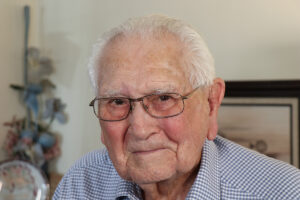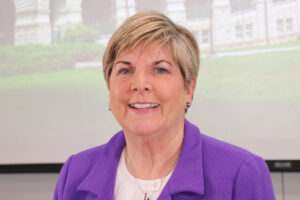Interview of Lee Hamm, September 3, 2025
Interviewed by Joan Wagnon
This interview of Lee Hamm, farmer, dairyman and state legislator, is full of his recollections about growing up in rural Pratt County during the Depression years. His descriptions of life on the farm are vivid as are his memories of being educated in a rural school. At the age of 96 his memories of his public service are still sharp. He served on two school boards, Glendale and Pratt, during the time that Kansas was in the process of consolidating its 2800 rural schools down to about 300. He ran for the Legislature in 1972 Show Moreand served 20 years under 5 different governors before being appointed by Governor Joan Finney to head the Kansas Grain Inspection Department. Hamm closed the interview with some thoughts about the changes he has seen in state government and life in Kansas. Show Less





